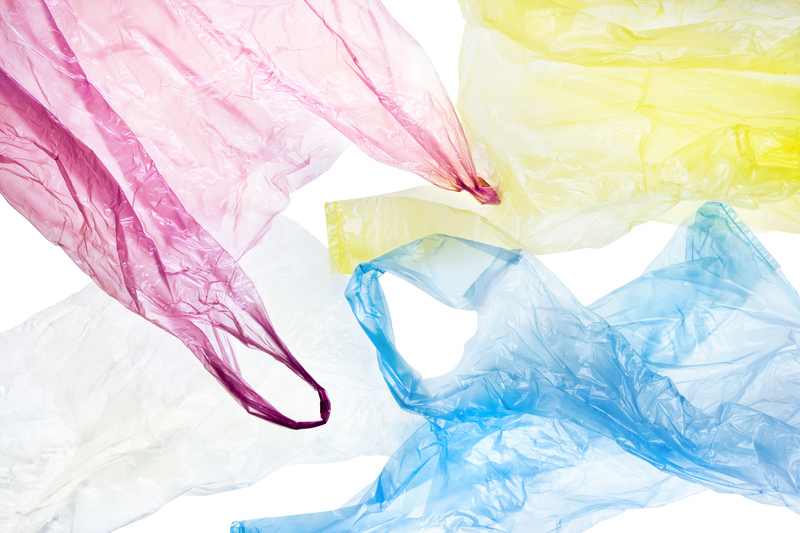Turning Recycling into a Fun Learning Experience: A Comprehensive Guide
Recycling is more than a household chore or a community responsibility--it's an invaluable opportunity to educate, inspire, and engage people of all ages. By turning recycling into a fun learning experience, it is possible to cultivate environmental awareness, develop practical skills, and encourage proactive behaviors that benefit our planet. This article will explore fresh ways to make recycling enjoyable and educational, both at home and in schools, while providing actionable tips for families, educators, and communities.

Why Make Recycling Fun and Educational?
Many individuals, especially children, learn best when activities are interactive, enjoyable, and meaningful. Integrating fun into recycling education not only fosters curiosity but also strengthens long-term habits and environmental stewardship. The benefits of engaging recycling lessons include:
- Increased Participation: People are more likely to recycle when the process is enjoyable and rewarding.
- Deeper Understanding: Hands-on activities help participants understand the impacts of waste and the power of recycling.
- Community Building: Group recycling projects can promote teamwork and a sense of accomplishment.
- Creativity and Innovation: Fun recycling tasks often inspire new ideas for reusing and repurposing materials.
Creative Ways to Make Recycling a Fun Learning Activity
1. Interactive Recycling Games and Challenges
One of the simplest yet most effective strategies for making recycling fun is to introduce games and challenges. By adding a competitive or playful element, you engage participants' natural sense of excitement and achievement.
- Recycling Relay Races: Organize races where participants sort recyclable materials into the correct bins. This physical activity is perfect for schools and family gatherings.
- Sorting Scavenger Hunts: Hide recyclables around a designated area and have participants find and sort them correctly within a time limit.
- Trivia Quizzes: Develop a series of fun questions about recycling facts, types of materials, and local recycling rules. Offer small rewards for correct answers.
- Leaderboards and Point Systems: Create a month-long recycling leaderboard for classrooms or families, awarding points for effective recycling behavior and creative reuse.
2. Art and Craft Projects with Recyclable Materials
Transforming waste materials into art brings out the creative potential in learners of all ages and illustrates the principle of reuse. Here are a few ideas:
- Recycled Bottles Planters: Cut plastic bottles and use them as planters for small herbs or flowers.
- Cardboard Creations: Make models, masks, or dioramas from cardboard boxes and tubes.
- Paper Beads and Jewelry: Old magazines and newspapers can be rolled into colorful beads for unique jewelry pieces.
- Sculpture Competitions: Host competitions using only recyclable materials; showcase the creative works in a public space.
3. Recycling-Themed Educational Workshops and Field Trips
Organizing workshops and outings adds real-world context and practical knowledge. Consider the following:
- Visiting Recycling Facilities: Many sites offer guided tours that demonstrate how recyclables are processed.
- DIY Recycling Workshops: Host sessions on how to convert waste into useful household items or gifts.
- Guest Speakers: Invite local environmentalists or recycling coordinators to share insights and answer questions.
4. Storytelling and Educational Media
Storytelling, whether through books, comics, or short films, can personalize recycling topics and make them more relatable.
- Read Recycling-Themed Storybooks: Engage young readers with stories that highlight characters making positive choices about waste.
- Watch Documentaries or Cartoons: Choose age-appropriate shows that explain the journey of recyclables.
- Create Your Own Skits: Encourage children to write and perform skits or puppet shows based on recycling adventures.
Fun Recycling Projects for Kids and Families
Eco-Friendly Science Experiments
Science offers a natural pathway for making recycling a fun learning experience. Some popular experiments include:
- Homemade Paper: Recycle used paper into new sheets with simple household materials.
- Plastic Bottle Terrariums: Use clear bottles to create mini-ecosystems, teaching about the water cycle and plant growth.
- Decomposition Observation: Set up two sealed jars--one with biodegradable waste and soil; another with plastics. Track which materials break down over time.
Recycling-Themed Family Days
Dedicate a day to fun recycling activities:
- Neighborhood Clean-Ups: Collect litter and sort recyclables together, turning it into a game with prizes for the most collected or unusual item found.
- Upcycling Fashion Show: Fashion outfits from recyclables and have a runway display at home or in the community.
- Home Recycling Center: Create colorful, labeled bins at home and decorate them together to encourage daily sorting.
Integrating Recycling into School Curriculums
Baking recycling into lesson plans ensures that students see sustainability as a regular part of life, not simply an occasional event.
Cross-Disciplinary Recycling Lessons
- Math: Calculate savings in landfill space or reductions in CO2 emissions through correct recycling.
- Science: Conduct experiments on material composition and biodegradable properties as discussed above.
- Language Arts: Write persuasive essays or stories about the importance of recycling.
- Art: Create posters, murals, or infographics promoting effective recycling habits.
School-Wide Recycling Challenges
Organize competitions between classes or grade levels to encourage sustainability:
- Bin Decorating Contests: Let each class design their own recycling bin. Award prizes for the most creative and informative designs.
- Monthly Collection Tallies: Keep track of how much each group recycles each month. Highlight the winners and celebrate their achievements in assemblies or newsletters.
Leveraging Digital Tools for Fun Recycling Education
Recycling Apps and Online Games
In today's digital age, there are many apps and interactive websites that make learning about recycling both fun and interactive.
- Mobile Recycling Games: Download games where users sort virtual waste or build eco-friendly cities.
- Interactive Quizzes: Participate in global recycling knowledge competitions online.
- Tracker Apps: Some apps help families and classrooms set goals, monitor recycling activity, and celebrate successes with badges or certificates.
Online Workshops and Virtual Field Trips
Many recycling centers and environmental organizations now offer virtual tours and workshops, making it easier to access high-quality content from home or school.
Developing Lasting Habits: Tips for Success
- Start Small and Build Up: Focus on a single practice or material first (like paper or cans) before expanding to more challenging recyclables.
- Make Recycling Visible: Place bins in visible, convenient locations and use color-coding or fun labels.
- Connect Actions to Outcomes: Regularly discuss how recycling benefits the Earth and your community.
- Celebrate Achievements: Recognize and reward efforts, both large and small, in group settings or at home.
- Encourage Peer Learning: Let older kids teach younger siblings, or students present to classes about their recycling successes.
Overcoming Common Barriers
While transforming recycling into a fun learning experience is possible, there are often obstacles. Here's how to overcome some common challenges:
- Lack of Motivation: Use rewards, competitions, and team-based goals to keep excitement and engagement high.
- Confusion About What is Recyclable: Post simple, visual guides near recycling areas and use interactive lessons to clarify local policies.
- Limited Resources: Opt for low-cost or upcycled materials for projects, and seek out free online resources.
- Parental or Community Apathy: Share facts about environmental benefits and success stories to inspire buy-in.

Resources to Support Fun Recycling Education
Print and Digital Materials
- Local Government Guides: Most municipalities offer downloadable recycling guidelines and posters.
- Environmental Nonprofits: Groups like the World Wildlife Fund (WWF) and Earth Day Network offer lesson plans and activity kits.
- Interactive Websites: Try the EPA's Recycle City or National Geographic Kids for engaging educational content.
Books and Video Recommendations
- "The Adventures of a Plastic Bottle" by Alison Inches: A great illustrated introduction for elementary-aged kids.
- "One Plastic Bag" by Miranda Paul: Inspires with true stories of communities creatively tackling plastic waste.
- Short Documentaries: Search for "Plastic Oceans" or "The Story of Stuff" for age-appropriate videos.
The Lasting Impact: Building Lifelong Environmental Stewards
By making recycling fun and educational, we are not just teaching the mechanical process of sorting waste; we are cultivating a new generation of environmentally conscious citizens. Interactive, engaging recycling activities foster critical thinking, teamwork, and a passion for sustainability that children and adults alike will carry forward.
Remember, every bottle, can, or piece of paper diverted from landfill counts. When recycled thoughtfully, these small actions add up to make a big difference.
Conclusion: Turn Recycling Into a Fun Learning Journey Today!
Whether you are a teacher, a parent, or a community organizer, there are endless ways to creatively turn recycling into a fun learning experience. Start small, experiment with different activities, and most importantly--enjoy the journey! By making sustainability exciting and accessible, we lay the groundwork for lifelong eco-friendly habits and a healthier planet for all.
Ready to get started? Gather your supplies, pick a fun activity, and begin the adventure of recycling education with your group today!